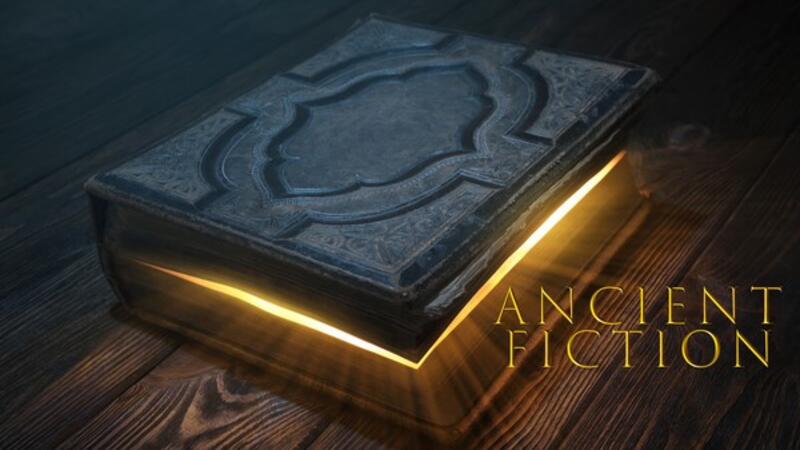The War that Never Ends: The United States and Vietnam
Course Description
Almost a half-century after it ended, the Vietnam War continues to inspire passion and controversy. It is, in a sense, the war that never ends. This course aims to introduce participants to the history of the war and to delve into some of the most contentious questions that it inspires among historians and other commentators. The goal is not only to recover an enormously complicated history but also to bring greater clarity to ongoing debates.
The course will proceed chronologically, but it will not offer a simple narrative of U.S. involvement in Southeast Asia. Rather, it will delve into five broad areas of contention. Why was there social and political conflict in Vietnam? Why did that conflict come to matter so much to U.S. leaders in the 1950s and 1960s? Why did the United States fail to achieve its goals in Vietnam? How did the United States ultimately extricate itself from the fight? And what are the principal lessons and implications of the war for American politics, policy, and society?
Although the course will focus on the U.S. experience, it will also draw on and highlight new scholarship rooted in examination of Vietnamese, Soviet, Chinese, and East European sources — material that has transformed the study of the war in the last 20 years or so. The instructor will share revealing documents and address the key areas of uncertainty that remain fertile for new research in the years ahead.
Information Links


- About the Professor
Mark Atwood Lawrence is Director of the LBJ Presidential Library and Museum in Austin, Texas. Until January 2020, he taught as Associate Professor of History at UT-Austin, where his classes focused on American and international history. Lawrence is the author of Assuming the Burden: Europe and the American Commitment to War in Vietnam (Berkeley: University of California Press, 2005), which won the Paul Birdsall Prize for European military and strategic history and the George Louis Beer Prize for European international history. In 2008, he published The Vietnam War: A Concise International History (New York: Oxford University Press), which was selected by the History Book Club and the Military History Book Club. He has also published several edited and co-edited books, as well as numerous articles, chapters, and reviews on various aspects of the history of U.S. foreign relations. In 2005, he was awarded the President’s Associates’ Award for Teaching Excellence at UT-Austin and in 2019 the Silver Spurs Centennial Teaching Fellowship from the UT College of Liberal Arts. Lawrence has held the Cassius Marcellus Clay Fellowship at Yale University (2006-2008) and the Stanley Kaplan Visiting Professorship in American Foreign Policy at Williams College (2011-2012). He earned his BA from Stanford University and his PhD from Yale University. His next book, In the Shadow of Vietnam: The United States and the Third World in the 1960s, will be published by Princeton University Press in fall 2021.
Required Reading(s) (Sold separately):
Mark Atwood Lawrence, The Vietnam War: An International History in Documents - Amazon - $28.95
Neil L. Jamieson, Understanding Vietnam - Amazon - $29.00
George C. Herring, America’s Longest War: The United States and Vietnam, 1950-1975 - Amazon - $44.74
Week 1:
Why Was There Conflict in Vietnam?
Assigned reading:
Neil L. Jamieson, Understanding Vietnam, chapters 1-2
Mark Atwood Lawrence, The Vietnam War: An International History in Documents, chapter 1
Optional reading:
Mark Philip Bradley, Vietnam at War (2012)
William J. Duiker, The Communist Road to Power in Vietnam (1996)
William J. Duiker, Ho Chi Minh: A Life (2000)
Duong Van Mai Elliott, Sacred Willow: Four Generations in the Life of a Vietnamese Family (2000)
Tran Tu Binh, The Red Earth: A Vietnamese Memoir of Life on a Colonial Rubber Plantation (1985)
Truong Buu Lam, Colonialism Experienced: Vietnamese Writings on Colonialism, 1900-1931 (2000)
Week 2:
Why Did Vietnam Matter to the United States?
Assigned reading:
George C. Herring, America’s Longest War: The United States and Vietnam, 1950-1975, chapters 1-2
Mark Atwood Lawrence, The Vietnam War: An International History in Documents, chapters 2-4
Optional reading:
Eugene Burdick and William J. Lederer, The Ugly American (1958)
Seth Jacobs, America’s Miracle Man in Vietnam: Ngo Dinh Diem, Religion, Race, and U.S. Intervention in Southeast Asia (2005)
Fredrik Logevall, Choosing War: The Lost Chance for Peace and the Escalation of War in Vietnam (1999)
Fredrik Logevall, Embers of War: The Fall of an Empire and the Making of America’s Vietnam (2014)
Andrew J. Rotter, The Path to Vietnam: Origins of the American Commitment to Southeast Asia (1989)
Kathryn Statler, Replacing France: The Origins of American Intervention in Vietnam (2007)
Week 3:
Why Did the United States Falter in Vietnam?
Assigned reading:
George C. Herring, America’s Longest War: The United States and Vietnam, 1950-1975, chapters 3-5
Mark Atwood Lawrence, The Vietnam War: An International History in Documents, chapters 4-6
Optional reading:
Christian G. Appy, Working Class War: American Combat Soldiers and Vietnam (2003)
Phillip Caputo, A Rumor of War (1983)
Graham Greene, The Quiet American (1955)
Andrew F. Krepinovich Jr.’s The Army in Vietnam (1988)
David Maraniss, They Marched into Sunlight: War and Peace in Vietnam and America (2004)
Robert S. McNamara, In Retrospect: The Tragedy and Lessons of Vietnam (1996)
Jeffrey Race, War Comes to Long An: Revolutionary Conflict in a Vietnamese Province (1972)
Al Santoli, Everything We Had: An Oral History of the Vietnam War (1985)
Truong Nhu Tang, A Viet Cong Memoir: An Inside Account of the Vietnam War and Its Aftermath (1985)
Karen Gottschang Turner, Even the Women Must Fight: Memories of War from North Vietnam (1999)
Qiang Zhai, China and the Vietnam Wars (2000)
Week 4:
How Did America’s War in Vietnam End?
Assigned reading:
George C. Herring, America’s Longest War: The United States and Vietnam, 1950-1975, chapters 6-7
Mark Atwood Lawrence, The Vietnam War: An International History in Documents, chapters 7-9
Optional reading:
Larry Berman, No Peace, No Honor: Kissinger, Nixon, and Betrayal in Vietnam (2001)
Mark Bowden, Hue, 1968: A Turning Point of the American War in Vietnam (2017)
Jeffrey Kimball, Nixon’s Vietnam War (1998)
Lien-Hang T. Nguyen, Hanoi’s War: An International History of the War for Peace in Vietnam (2012)
Thomas Schwartz, Henry Kissinger and American Power: A Political Biography (2020)
Lewis Sorley, A Better War: The Unexamined Victories and Final Tragedy of America’s Last Years in Vietnam (2007)
Week 5:
What Are the Lessons of the Lost War?
Assigned reading:
George C. Herring, America’s Longest War: The United States and Vietnam, 1950-1975, chapter 8
Mark Atwood Lawrence, The Vietnam War: An International History in Documents, chapter 10
Optional reading:
Christian G. Appy, American Reckoning: The Vietnam War and Our National Identity (2016)
Tom Engelhardt, The End of Victory Culture: Cold War America and the Disillusioning of a Generation, 2d ed. (2007)
Gary R. Hess, Vietnam: Explaining America’s Lost War (2008)
Marvin Kalb and Deborah Kalb, Haunting Legacy: Vietnam and the American Presidency from Ford to Obama (2011)
Tim O’Brien, The Things They Carried (1990)
Robert D. Schulzinger, A Time for Peace: The Legacy of the Vietnam War (2006)

Tuesdays at 11:00 - 12:30 p.m. eastern
Wednesdays at 1:00 - 2:30 p.m. eastern
February 2 - March 3, 2021
Faculty: Harry Attridge
Info Accordions
Yale Alumni Academy’s Virtual Seminars meet weekly on Zoom for five, 90-minute sessions. Enrollment is limited to 25 participants. This small group format thrives on a sense of intellectual collegiality, including sharing our backgrounds and the curiosities that we bring to this course. Online courses are primarily synchronous, with live sessions focused on discussion and interactive exchange amongst faculty and fellow participants.
Outside readings and other multi-media course materials enhance the learning experience and can be accessed via the private course website hosted on Yale’s Coursera learning platform. Participants will receive a training on the online tools, and technical support will be available throughout the program. To join the course, you will need a computer or tablet with a video camera and a high-speed internet connection.
Alumni and friends of Yale are welcome to register for this course on a space-available, first-come, first-served basis. Once all available course slots have been filled, new registrants will be notified by email of their status on the waiting list.
No-risk cancellation is available through Friday, January 22, 2021, after which time, there will be no refunds issued. If Yale Alumni Academy cancels any course prior to its start, you may sign up for another course, or your fee will be fully refunded.
Please be sure to complete all pages of the informational form. You MUST choose the registration fee at the bottom of the Registration Page to properly complete registration. Then be sure to click the final "Click to Complete Registration" button. Your reservation has not been received by the Academy until you complete payment information on the final screen. Please double check that the name of your course is correct before confirming registration. You will receive a summary email immediately after you complete your registration. Please save this summary email as you can modify your registration.
Each registration covers one person. If your spouse or family member would like to join the course, please select "Add a Guest" at the bottom of the main registration page. Please ensure you check the course name for each guest as well. You will be billed for the additional registration. If you have any questions, please contact the Yale Alumni Team at alumniacademy@yale.edu.
By registering for, attending, or participating in this event, I grant my permission to the Yale Alumni Association (YAA) and/or Yale University to photograph, videotape, and/or audio record my image and/or voice(and that of any minor guest attendees(s)) and the right to use and reproduce such as images and/or recordings in all media, including digital media, for purpose of promoting Yale University and the YAA programs and events, other purposes in accordance with Yale's mission. I understand that I will have no approval rights with respect to the use of these images.
